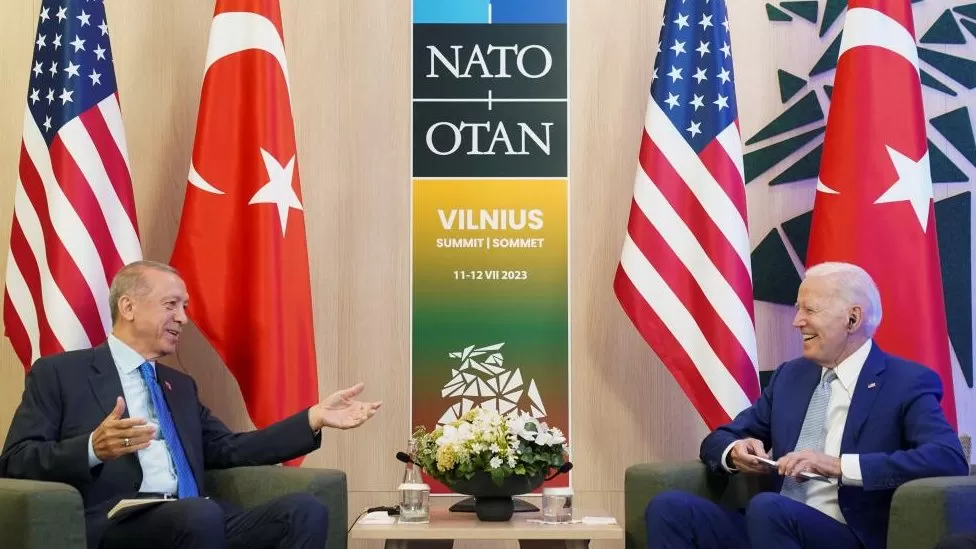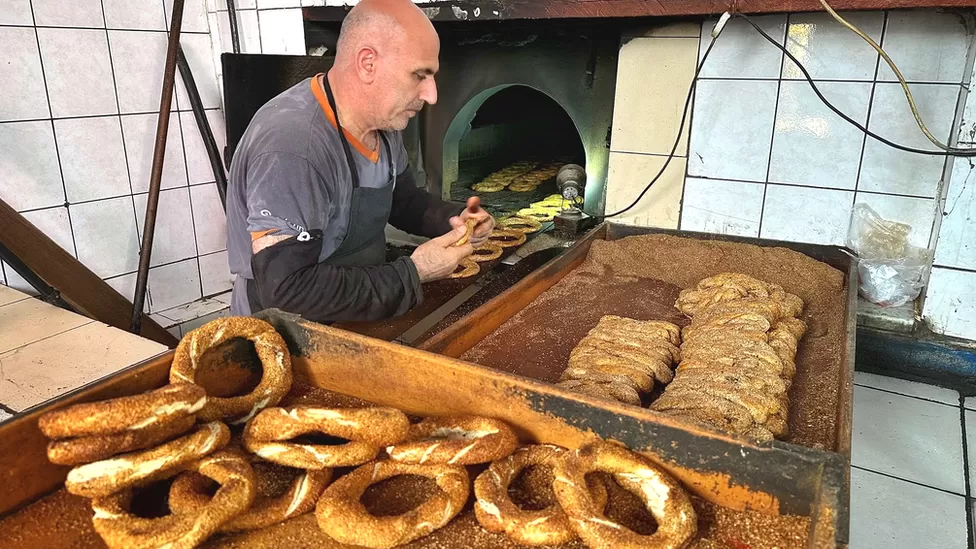Turkey’s economic crisis prompts Erdogan to look West

As Turkey’s president seeks solutions to a long and worsening economic crisis, Recep Tayyip Erdogan made a quick political pivot this week aimed at warming relations with the West.
On Monday, Erdogan stunned Nato allies by dropping his long-held objection to Sweden’s membership request. A few hours before arriving in Lithuania, he criticised Stockholm for not doing enough to stop terrorism.
Due to Turkey’s economic woes, the newly re-elected president is eager to mend diplomatic relations with the West and reassure foreign investors who have abandoned the country.
Batu Coskun, of the Sadiq Institute think tank in Ankara, called it a classic Erdogan move. “It comes out of nowhere, a sudden change in policy,” he said. His U-turn would have been disastrous for any other politician, but he is prospering from it.”
As a result of his about-face, he secured commitments from Sweden, the US, Nato, and even the European Union.
According to Mr Erdogan, Brussels is “positive” about reviving Ankara’s long-stalled EU bid and moving forward on visa liberalization as Ankara receives long-awaited F-16 fighter jets from the United States.
His swift change of heart is seen as a sign he is taking a more constructive approach with American and European allies who have been concerned about Turkey’s democratic backsliding for years.
Nato summit attendees included France’s Emmanuel Macron, UK Prime Minister Rishi Sunak, and German Chancellor Olaf Scholz for numerous photo opportunities.
In a bilateral meeting with Mr Erdogan after years of keeping him at arm’s length, US President Joe Biden touted his own relationship with him.
As a result of the elections, Erdogan seems to be more confident about Russia and the West, according to political analyst Batu Coskun.
Turkey’s economy is floundering, but there is urgency at home to revive it. In a historic second-round vote at the end of May, it was the biggest issue in his hard-fought victory.
“Business is not so good,” says Burhan Morkoc, a baker who spends 17 hours a day shoveling simits into a wood-burning oven.

Because inflation here is hovering stubbornly at just under 40%, down from a peak of 85.5% in October 2022.
This summer, the lira has plummeted to record lows against the US dollar.
While central banks around the world have raised interest rates to cool rising prices, President Erdogan has opposed economic orthodoxy, arguing that higher rates would raise prices. He has instead kept pressure on the Turkish central bank to keep borrowing costs low.
Burhan Morkoc runs his small bakery with three brothers in Istanbul’s Kadıkoy neighbourhood.
In the past year and a half, rents in the area have increased 400%.
Other bakery essentials have also skyrocketed – wood for the oven has gone up 900%, flour nearly 500%, yeast 255%, and sesame seeds 1500%.
Turkish Finance Minister Mehmet Simsek, a Wall Street veteran appointed by President Erdogan last month, has pledged to restore “rational economic policy” to ease such burdens.
He oversaw the first increase in interest rates in 27 months in collaboration with newly-appointed central bank governor Hafize Gaye Erkan – who has Wall Street experience as well.
